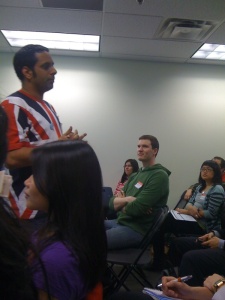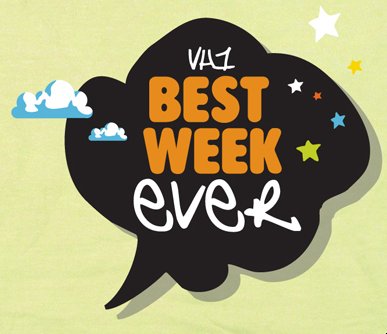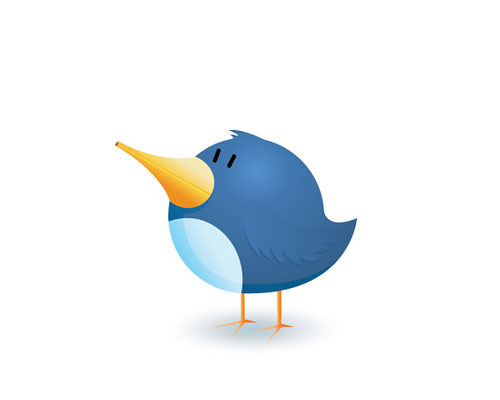[youtube=http://www.youtube.com/watch?v=todUE3-byd4&hl=en_US&fs=1&rel=0&color1=0x006699&color2=0x54abd6&border=1]
Learning to speak
This past weekend I had the opportunity to speak at PodCamp Toronto. For those who may not know, PodCamp Toronto is organized as an unconference. A conference is a place/event you would go to to attend sessions. An unconference is organized by the attendees. And sessions are led. Which means I didn’t really give a talk. I facilitated a session would be a better way of putting it.
PodCamp Toronto is a 2 day event which brings together podcasting and social media enthusiasts in an effort to learn from each other and connect with new and old acquaintances.
I attended some really interesting sessions and made a load of new friends. In fact, the best time was connecting with new and not so new friends at a greasy spoon on Saturday evening. I even managed to get invited and go see a Toronto Raptors game. And this by someone I never even knew 8 hours earlier! Amazing!
However, I wanted to share some lessons I learned myself. And these lessons were learned by facilitating my session. Although I have had the opportunity to speak in private functions, this was really my first public talk. And boy, did I learn a lot:
- Have multiple slides per argument. People seem to love their power points!
- Don’t repeat yourself. I don’t like over-preparing for presentations but I think I should start.
- Always invite your fans. It’s always good to have supporters in the crowd.
- Don’t be afraid to be real. People appreciate honesty and abhor people who are fake.
- Involve the crowd. An active crowd is a happy crowd.
- Wear a loud shirt.
- Create a hashtag (#) on Twitter to connect with everyone who attended the session. Mine was #loudshirt. (Obvious, eh!)
A special thanks to @coleyeung and @zeppelinsocial for the pics! Video will follow soon.
Week in Review
As you may know, I’ve been doing lots of writing on different parts of the interwebs. So what I’ve decided to do is to post here a weekly summary of my activities.
Techvibes
- Marketing talk by WIND Mobile Chief Customer Officer Chris Robbins.
- Jordan Banks – former NHLPA executive now an early stage tech investor.
- New service for companies interested in social media – SocialTALK.
- Sony Ericsson and Fido launch new eco-phone in Canada.
- Video interview with Kunal Gupta of Polar Mobile.
- 5 Questions…with Dave Fleet.
- Getting ready for PodCamp Toronto.
- Video interview with Impact.org founder Kunal Gupta.
- Sony Ericsson looking for app developers.
- Macworld 2010
- University of Waterloo Alternative Fuels Team.
Fadoo.ca
- Inside the CFL replay room – Video.
iBizBook
- Housing market cooldown.
As always, feel free to be my friend on Facebook (where you can also see this week’s Raptors photos), follow me on Twitter, and watch my home videos on YouTube.
Have a great weekend everyone!
The Blogging Continues
Back in December I told you all about my new gig at Techvibes. I hope some of you have visited me over there and are enjoying some of the people, places, and companies I have been highlighting there. It’s been really fun meeting some of Toronto’s coolest, hippest and socially progressive tech entrepreneurs.
 Today, I have some more blogging news.
Today, I have some more blogging news.
You can now also find me at Fadoo.ca.
The Fadoo website is a Canadian website dedicated to bringing Canadians “a platform for dialogue and comment among people of power and influence in the sports world. And then, let everyone in on the conversation.”
What you’re going to get from me is what no one else in Toronto will be able to provide. I’ll have the inside look into sports and social media and technology. So if that interests you then stay tuned (and please comment. I LOVE comments!). And if it doesn’t interest you let me know, what you would like to see.
Have a great weekend and enjoy the Olympics!
UnMarketing Video
Many people have been asking about the UnMarketing video I took at the Toronto Social Media Week & ReFresh Event. Some of them have been posted up on Techvibes. They can also be found on my YouTube channel.
If you’re interested or curious about social media and why its relevant to you, your work/business and life, I would highly encourage you to watch the video series.
Why I started @karimsreplies
It’s been a while wince I’ve blogged here. If you’re wondering why I’ve been so quiet, I haven’t really. I just need to focus on when I’m going to write or video blog here. I have, however, been writing up a storm over at Techvibes. There’s a link over to the right of this post to some of my stuff.
But before I go I have to tell you about @karimsreplies.
Many of you may know that I tweet. Alot. Not that much. Guess it depends who you ask. One of the things I found was that I was responding to alot of tweets. And that’s a good thing. The problem was that everyone would receive these tweets. And sometimes this is not a good thing. There is something called “noise”. Noise is the stuff on Twitter and other social media platforms that doesn’t add any value.
The question about value is relative. If you don’t like the comment then it’s noise. And then there’s the issue with Facebook. All of my tweets end up on Facebook. Some people think I’m the only one alive when they visit their Facebook pages.
So I have decided to fix it. Partially.
I’m still tweeting from @karimkanji. And I encourage you to follow me. Your IQ will actually increase as will your coolness factor.
However, I will respond to tweets via @karimsreplies to help keep the noise down. People can still follow me at @karimsreplies but now you know my purpose in tweeting from @karimsreplies.
I’ve been asked, “Why not just DM?” Two reasons: One, not everyone follows everyone. And to DM someone on Twitter we need to be following each other. Two, some people actually are interested in following the conversations happening over at @karimsreplies.
So, if I’m your friend on Facebook you can thank me for the noticeable decline in tweets. Also, if you’re a heavy tweeter, think about opening another Twitter account just to reply to people. You’re still engaging but you’ll be a little less annoying. And my sister says that’s a good thing.
The Audacity To Win
Three books so far this year. Here’s my book report video style.
Podcasts
I enjoy podcasts. Listening to them. I’m trying to figure out how to podcast but until then I’ll be satisfied with listening to them.
Most of you know what a podcast is so I won’t bore you with an explanation.
What I want to do today is tell you why I enjoy podcasts (the audio version for now). Then I’ll tell you some of the one’s I subscribe to.
So, why listen to podcasts? Here’s my explanation: Most of them you can’t get on the radio. There are alot of really smart people who just happen to podcast. For example, maybe you like archeology. Not many radio stations offer such programming. But maybe there’s a guy or gal who podcasts about this subject. If you’re interested, you’ll listen. And, at a time when you want to.
And that’s a great second reason. Maybe there’s a radio program you do enjoy but don’t have the time to listen when it’s aired. Well, with technology being so user friendly, you can enjoy your favourite program when you have the time to listen to it.
Finally, podcasting gives me an opportunity to learn about things that interest and intrigue me from people who are experts. And that’s priceless!
Karim’s Favourite Podcasts:
- Between The Ropes. I’m a mark for professional wrestling. Don’t ask me why. It’s the same reason some of you watch The Hills, Young and the Restless or even Poker. You just do. The show is based out of Orlando, Florida and the hosts are amazing. Brian, Vito and D’Lo offer their community amazing insight and commentary while interviewing some of wrestling’s past and current stars.
- Spark. Hosted by the amazing Nora Young, “Spark is a weekly audio blog of smart and unexpected trendwatching. It’s not just technology for gearheads, it’s about the way technology affects our lives, and the world around us.”
- The Moth. True stories told on stage without notes in front of crowds. That’s the concept of this great podcast. This not-for-profit storytelling organization features unknown as well as popular speakers from various backgrounds and industries. Prepare to laugh and sometimes cry.
- Media Hacks (Six Pixels of Separation – Twist Image). This is my newest find. And it’s a gem. Media Hacks features Canada’s and America’s top marketing and social media personalities. Media Hacks (found on the SPOS-TI podcast) discusses “media, technology, publishing, culture and how we all interact with it and build community”.
There’s a few other I listen to on occasion and a few other I’m checking out. And maybe one day, I’ll do my own podcast.
Do you podcast or listen to podcasts? What are your favourites? Have you listened to the one’s listed above? As always, I look forward to the conversation…
Crush It
I like reading. I think I always have. I’ve almost read every Hardy Boys books and many Robert Ludlum books. These days my reading includes stuff about social media. I’ve recently read Trust Agents as well as Accidental Billionaires. (To be honest, I think I need to get some more Ludlum in my veins – one can only get to serious.)
Today, I’m very excited to offer all my blog readers a chance to win a fantastic book called Crush It! by Gary Vaynerchuk. I recently put out a challenge on Twitter that if and when I reach 1000 followers on Twitter I would give away 2 copies of the best-selling book.
So, here I am. True to my word I will give away 2 copies. One will be the hardcover edition. The other will be a very cool online web-based version of the book from vook.com. (Check out the link. It’s pretty cool!)
On with the contest! Contest? You bet. Here are the rules:
- You must participate on my blog to have a chance of winning. (No Facebook entries please. Thank you.)
- Leave a comment on WHY you deserve to win either copy of the book.
- Winner will be based on what I determine as the best response.
- I am looking for a minimum of
10,8,5,3, 2 responses (so tell your friends to apply because I only know of 4 people who actually read this!) - Contest runs from now until I finish eating my lunch on January 22.
Ready. Set. Go.
Hire me – An Open Letter
Open letter to cool brands who have hired celebrities and athletes to endorsement contracts:
Hire me.
Yes I know. That’s a pretty bold statement. You can go ahead and bing google me. You’ll find nothing of consequence.
I haven’t won any athletic awards since before my mom bought me a Millennium Survival Kit. I have yet to be featured on any celebrity magazines or websites. Trust me. Perez Hilton does not know who I am.
The only red carpet I have ever been on was when my cousin got married this past summer. And I almost tripped over that one. I have never taken steroids or pleaded the 5th. People magazine’s “Sexiest Man Alive” has never heard of me. If I ever applied to BeautifulPeople.com I would not be accepted.
You see, I’m just a regular guy. I have a wife and kid and live in a house in a quiet neighbourhood in the city.
I don’t consider myself average. I’m just not a celebrity. People don’t take pictures of me. Check Flickr if you don’t believe me.
Here’s what I CAN offer you: I’m real and authentic. That’s my brand. I represent the kind of person you want using your product.
If you’re a clothing company I can assure you I wear clothes. And being in Toronto (and this being winter) I wear lots of them. I need various kinds of shoes to tackle various kinds of weather. Sunglasses? Ditto. Food? I love to eat. Cars? I got my drivers licence. I’m a consumer. And I’m not loyal to brands (unless I get paid).
But not only that, I’m active. I’m all over this fair city of ours. (By the way, I will travel for money – Hello, Flight Centre!) You can find me at trade shows, meetups, social gatherings, at baseball and football games, and at various drinking and eating establishments. I’m an avid blogger and tweeter and my sister says I spend too much time on Facebook.
And if you ask anybody about me here’s the answer you’ll get: He’s nice. Now isn’t that the type of person you would want wearing your fine cologne or expensive watch? I think so.
And here’s my guarantee to you should you decide to hire me: I don’t have far to fall. Unlike Tiger, Phelps, McGuire, Clemons, Letterman and various other “stars” my fall (which you are concerned about) will not be damaging. To you. Because there won’t be one. In fact, there will be no fall into the TMZ world.
Here’s why:
- I have an implied code of conduct. – Unlike Kobe, I live on a budget. There is no way in hell that I would jeopardize free swag just for a little late night shenanigans.
- Although all press is not good press, you won’t have to worry about neither. I won’t generate any press. I’ll melt into the crowd at the local grocery store as I buy your tasty cereal.
- I’m very good at saying sorry. So if I forget to put the snow tires you send me on my car and something unforeseen happens, I’ll say sorry. And you won’t have to worry about a lawsuit.
- And if I screw up really bad (meaning the media and those damn bloggers find out I’m being paid by you) I’ll just lay low for a while. I’ll stop tweeting, facebooking, and hobnobbing with Toronto’s social media elite.
So what do you think? Don’t you wish your high-paid celebrity endorsers followed those same 4 steps?
You see, these are the things that the average mom and dad teach their children:
- Do unto others as you would have them do unto you.
- Don’t do anything to embarass your mother.
- Learn to say sorry.
- And if you make a mistake, it’s better to shut your mouth than to dig yourself into a bigger hole.
And it’s something that I promise I will do for you.
Now if you deem it inappropriate to hire a brand like Karim Kanji, I understand. I mean, there is a chance I’ll be BIG someday. I mean REALLY BIG.
So my advice to you would then be to hire that next person who fills your coffee cup tomorrow morning.
They know a thing or two about being human.
Hire them.
Regards,
Karim Kanji
karim_kanji at hotmail dot com





